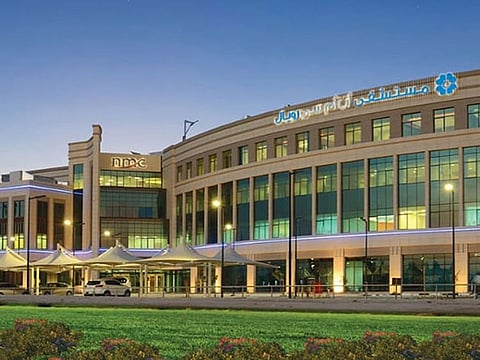NMC Health reassures staff on salary payments
UAE's largest hospital operator also reassures staff about prompt salary payments

Dubai: UAE’s largest hospital operator, NMC Health, is close to securing a deal with its creditor banks for the release of the company’s funds and ensure there is no repeat of the delayed salary payments of last month, according to banking sources who spoke to ‘Gulf News’.
February salaries were paid in three stages to the 16,500-strong workforce, with the last set getting theirs by March 10 or so. Even then, it required help from Daman, the Abu Dhabi headquartered medical insurer to help out with the funds needed to pay off the salaries. It was said to be the first time in the company’s history that salaries had been delayed. It was felt that a repeat would severely undermine staff morale and hurt future prospects.
NMC Health operates more than 120 hospitals and clinics in the UAE, together accounting for more than 2,000 hospital beds.
Now, NMC Health’s interim CEO, Michael Davis issued a statement on Tuesday to reassure staff that the February issue was a one-off. In a statement to staff, released today, he expressed full “confidence” in salvaging the situation and thanked them for “their commitment to the community”.
Parallel track
Simultaneously, Davis is in talks with the “40-odd” banks to resolve the cashflow situation. Banking sources said these talks also cover the likely restructuring of the near $5 billion NMC Health owes banks.
“Davis assured banks that NMC Health remains extremely strong operationally – it treated 1.1 million patients in January and February, of whom 91,000 plus were children,” said one banker who was there for the discussions. “The CEO’s message is clear – they have the systems and personnel to deal with the healthcare needs of the country and its citizens.
“And all the company needs right now is more time to restructure its debts in whichever way possible.”
Why the cash crunch happened
In the provisions by which NMC Health took out $2 billion plus in bank loans, it clearly specifies that three principal shareholders, including the founder Dr. B. R. Shetty, should have a combined 30 per cent plus shareholding. And the provisions would change immediately if the shareholding fell below that level.
This was exactly what happened, which is why NMC Health no longer had access to the funds in its bank accounts and those monies coming to them from health insurers. This, in short, led to the problems of fund shortage in February and eventually led to the delayed salary payments.
But will the $2.7b hurt any deal?
It is just recently that NMC’s current Board of Directors was made aware of an additional $2.7 billion taken out from banks. The matter is still being internally investigated and could take a few more weeks for clarity as to who had access to the funds and for what purpose they were used.
Banking sources say a $5 billion debt does make the negotiation process much more difficult… but they remain hopeful. “It’s not as if NMC Health is not doing well operationally – it has steady funds coming in and it is serving a greater purpose at a time of a global pandemic crisis,” said a banker. “These will all be taken into account in the debt negotiations.
“Salvaging of a business enterprise is a tough exercise while recovering from a situation might be a different scenario altogether. Fortunately for Michael Davis, NMC Health continues to do well in the community.
“The [funding] stalemate hasn’t impacted the business. His biggest strength is the comfort he has in the operations and his confidence in the outcomes.”







